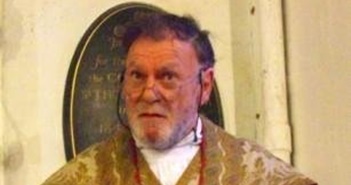
There’s some fantastic commentary in the Catholic blogosphere today, and as I come across new gems I’ll be excerpting and/or sharing it here. I submit to you Fr. Hunwicke’s excellent assessment of the curiously specific Mottramism happening in a way that strains credulity:
Some Cardinal called Wuerl has said “There are always people who are unhappy about what is going on in the Church, but the touchstone of authentic Catholicism is adherence to the teaching of the Pope”. Sounds good; sounds obvious. But ….
Note that he says, not popes, but pope. So he must mean just the Pope, the present Pope, the pope-for-the-time-being. And note that he can’t just mean “the ex cathedra teaching of the Pope”, because in that case his words would mean nothing since Bergoglio has defined nothing and it is questionable, to put it mildly, whether Evangelii gaudium and Laudato si are in any sense Magisterial.
So, when a pontificate follows a pontificate, this strange man clears his mind of the teaching of all the previous popes (except possibly when ex cathedra), so as to have a tabula rasa upon which to inscribe whatever idiosyncrasies and obiter opinions the new pope turns out to possess. And this is what he is recommending to the rest of us. Have I got that right?
I find myself wondering how these rabid ultra-extreme fundamentalist papalists imagine their pronouncements must sound to non-Catholics. Do they seriously imagine that Lutherans, Anglicans, Orthodox are likely to be attracted to the idea of a Papacy in which every whimsy of the current occupant of the See of S Peter has to be swallowed without question, otherwise one has abandoned the ‘touchstone’ of ‘authentic’ doctrine?
I left some of the best bits out, so be sure to go here for the rest.
I haven’t heard anyone else touch on the ecumenical drawbacks of such extreme papal positivism, but it’s certainly a consideration – at least to those who believe the purpose of ecumenism is return to the fullness of truth by membership and participation in the sacramental life of the One, Holy, Catholic, and Apostolic Church.
I know, I know, I’m so old-fashioned.


